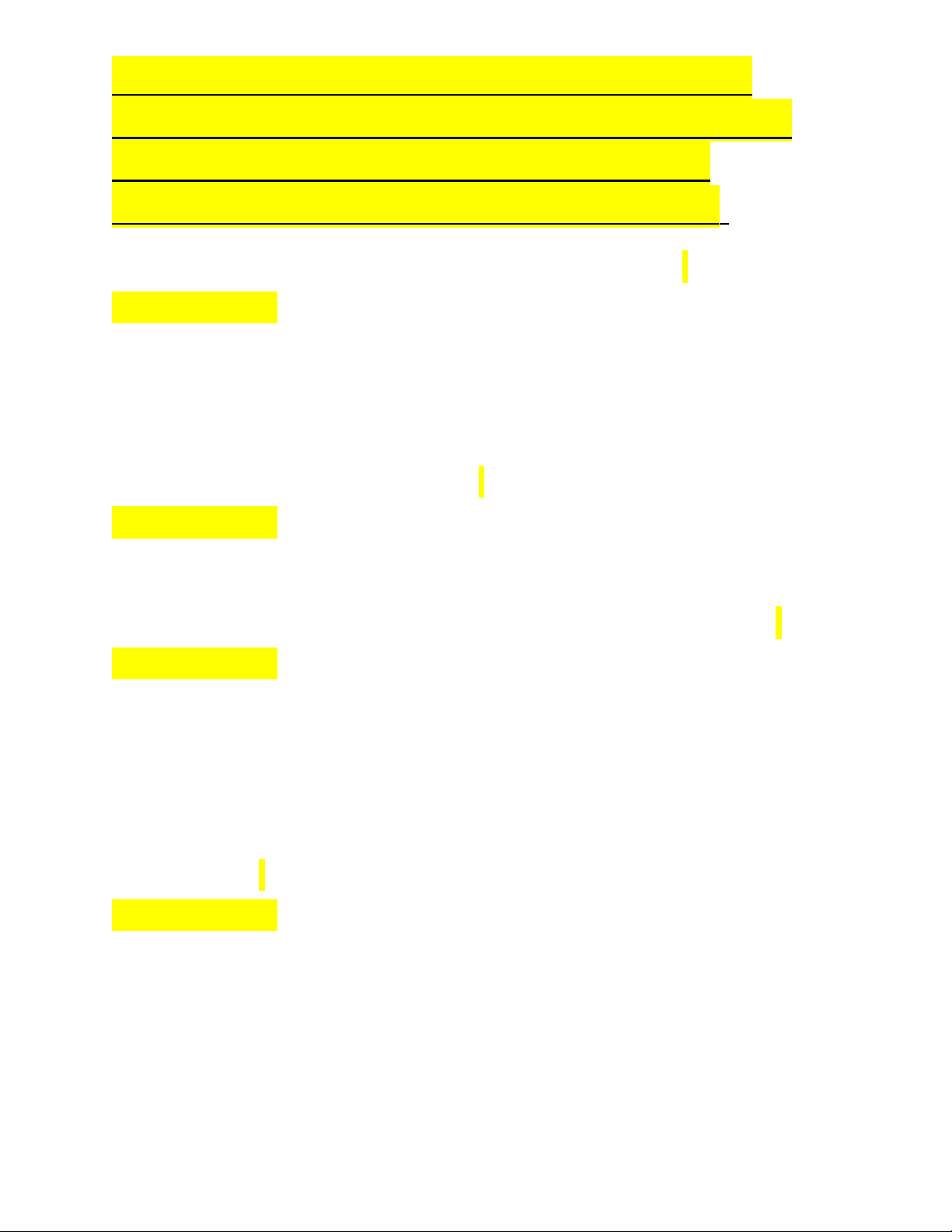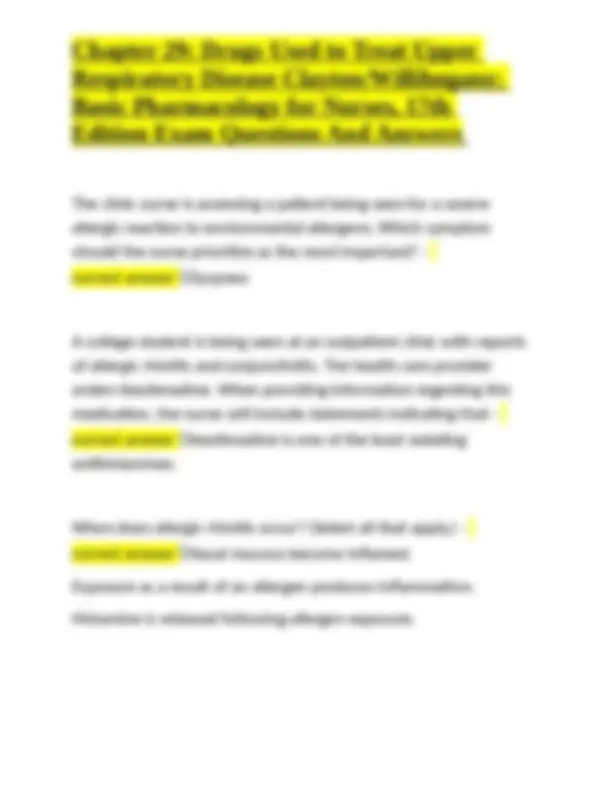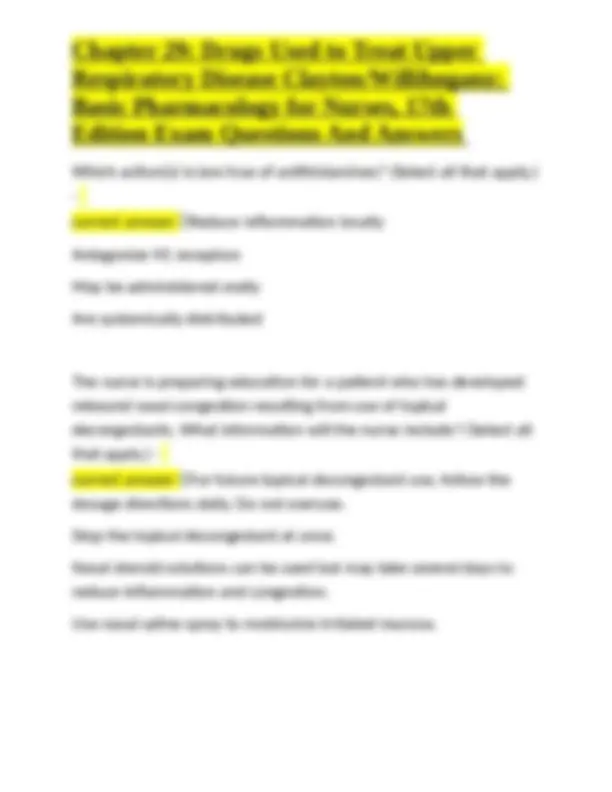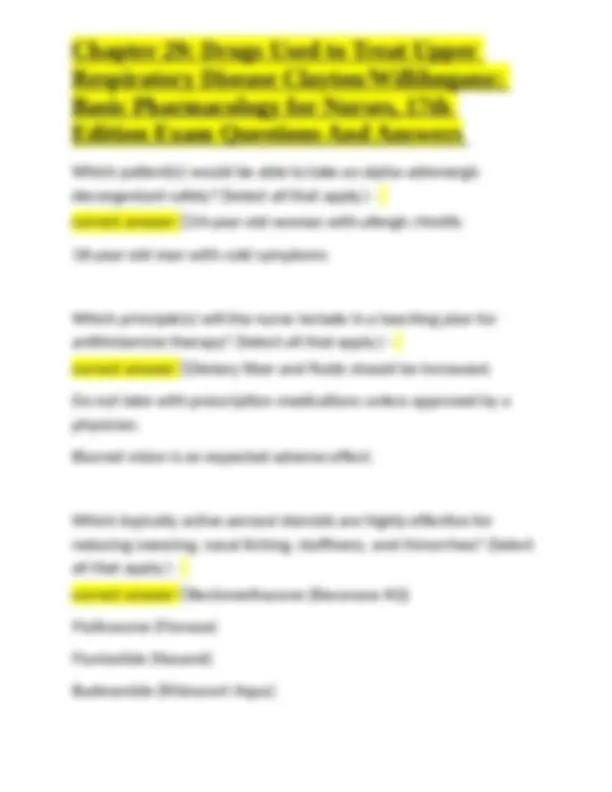





Study with the several resources on Docsity

Earn points by helping other students or get them with a premium plan


Prepare for your exams
Study with the several resources on Docsity

Earn points to download
Earn points by helping other students or get them with a premium plan
Community
Ask the community for help and clear up your study doubts
Discover the best universities in your country according to Docsity users
Free resources
Download our free guides on studying techniques, anxiety management strategies, and thesis advice from Docsity tutors
Chapter 29: Drugs Used to Treat Upper Respiratory Disease Clayton/Willihnganz: Basic Pharmacology for Nurses, 17th Edition Exam Questions And Answers
Typology: Exams
1 / 6

This page cannot be seen from the preview
Don't miss anything!




Which is a serious adverse effect of decongestants? - correct answer ✅Hypertension The nurse is teaching a patient about the administration of antihistamines. The nurse will instruct the patient to take the medication at what time of day? - correct answer ✅45 minutes before exposure to an allergen What can result if a patient overuses topical decongestants? - correct answer ✅Secondary congestion A patient at sports camp is complaining of itchy and watery eyes, coughing, and sneezing when outdoors. The patient's chart states that he has an allergy to grasses. Which medication will the nurse administer? - correct answer ✅Antihistamine Which medication may be given to patients with allergic seasonal rhinitis who do not respond to antihistamines and
sympathomimetics? - correct answer ✅Corticosteroids What initiates the sneeze reflex? - correct answer ✅Irritation of the nasal mucosa by foreign particulate matter What occurs in the nasal structures when cholinergic fibers are stimulated? - correct answer ✅Production of serous and mucous secretions in the nostrils What process in the antigen-antibody reaction causes the symptoms of allergies? - correct answer ✅Release of histamine Which instruction will the nurse include when teaching a patient with seasonal rhinitis and blocked nasal passages about intranasal corticosteroid therapy? - correct answer ✅"Use a decongestant prior to administration."
Which action(s) is/are true of antihistamines? (Select all that apply.)
correct answer ✅Reduce inflammation locally Antagonize H1 receptors May be administered orally Are systemically distributed The nurse is preparing education for a patient who has developed rebound nasal congestion resulting from use of topical decongestants. What information will the nurse include? (Select all that apply.) - correct answer ✅For future topical decongestant use, follow the dosage directions daily. Do not overuse. Stop the topical decongestant at once. Nasal steroid solutions can be used but may take several days to reduce inflammation and congestion. Use nasal saline spray to moisturize irritated mucosa.
Which patient(s) would be able to take an alpha-adrenergic decongestant safely? (Select all that apply.) - correct answer ✅24-year-old woman with allergic rhinitis 18-year-old man with cold symptoms Which principle(s) will the nurse include in a teaching plan for antihistamine therapy? (Select all that apply.) - correct answer ✅Dietary fiber and fluids should be increased. Do not take with prescription medications unless approved by a physician. Blurred vision is an expected adverse effect. Which topically active aerosol steroids are highly effective for reducing sneezing, nasal itching, stuffiness, and rhinorrhea? (Select all that apply.) - correct answer ✅Beclomethasone (Beconase AQ) Fluticasone (Flonase) Flunisolide (Nasarel) Budesonide (Rhinocort Aqua)